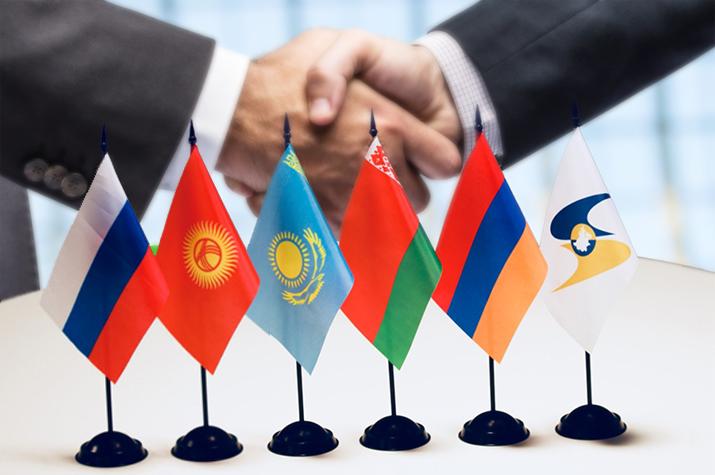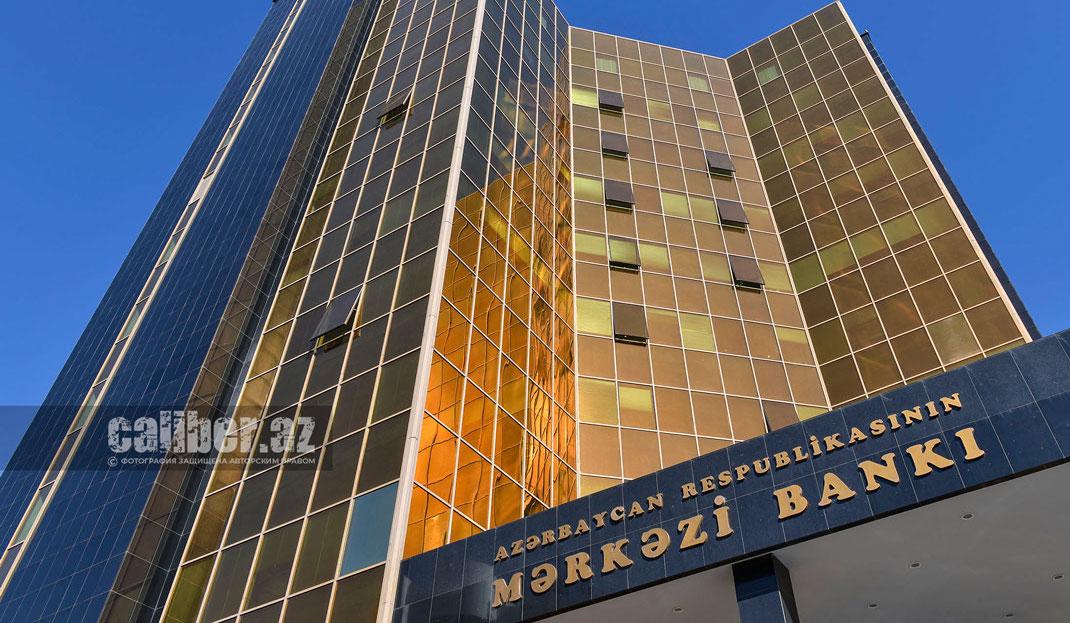Azerbaijan sees growth in mortgage lending Housing credit issues on Caliber.Az
The Russian-Ukrainian war and the strengthening of the sanctions regime not only turned into a collapse of the mortgage markets of the conflicting parties but also had a significant negative impact on the field of housing lending in Belarus, Kazakhstan, Kyrgyzstan, a number of other post-Soviet countries.
Amid the crisis, Azerbaijan made positive progress in this area. Thus, from January to May 2022, an 11% increase in the issuance of loans through the Azerbaijan Mortgage and Credit Guarantee Fund (AMCGF) was ensured, electronic mechanisms for registration and registration of mortgage securities were introduced, and categories of citizens on preferential mortgages were expanded. At the same time, the implementation of the strategy will be accelerated, according to which 1.7 billion manats of mortgage loans will be issued from 2020 to 2025.
The four months of the war in Ukraine and the harsh anti-Russian economic sanctions imposed by the collective West have had a very negative impact on the real estate market and the sphere of mortgage lending of the states of the Eurasian Economic Union (EAEU). If we consider the situation outside the EEU, then, of course, among the most affected was Ukraine, where the massive destruction of housing and the deterioration of the solvency of the population as a result of the war has put a significant part of the mortgage portfolio at risk of default. The worst situation is in the front line settlements and temporarily occupied regions, which accounted for 13% of the total volume of mortgages issued in the previous two years, or 1.7 billion hryvnias. In general, as of the beginning of June, 44 million square meters of housing have been damaged and destroyed in Ukraine, which in monetary terms corresponds to a loss of almost $40 billion.

Despite the fact that the Russian territory has barely faced the consequences of hostilities, the Russian mortgage market and the residential real estate sector are also experiencing the worst crisis in its history. Many construction projects have been frozen, prices for building materials have skyrocketed, and developers are running short of materials and components, which are no longer shipped from Europe. Worst of all, on February 28 the Russian Central Bank raised its discount rate to 20% per annum, curtailing government-subsidized mortgage lending programs. This inevitably changed the cost of credit and scared away borrowers: only in Moscow, the most capitalized and active real estate market, by May the number of mortgage transactions had collapsed by 40%. On June 22, the Russian government decided to lower the rate on concessional mortgages from 9% to 7%, but according to experts, these belated measures will not help correct the overall situation, especially given the high inflation, shortage of imported building materials and the fall in purchasing power of the population.
The situation in the real estate market in Belarus, which has fallen under sanctions, is quite difficult, where due to a sharp decrease in exports and a shortage of foreign currency the situation is close to pre-default. It also affects the reduced solvency of the Belarusian citizens - they are afraid to take "long" loans, and banks are afraid to give them mortgage loans: the number of appeals for consumer and housing loans in the Republic in March-May 2020 decreased by more than 70%.
Another member of the Eurasian Economic Union, Kazakhstan, is also in a very difficult situation, where the volume of housing loans has increased tenfold in seven years: however, today it is becoming increasingly difficult to serve mortgages due to exchange rate fluctuations and rising unemployment. With the beginning of the war in Ukraine and the subsequent negative consequences - difficulties with logistics, reduction of currency transactions and trade with the Russian Federation - already in March the primary property market of Kazakhstan saw a sharp decrease in sales, clients' interest in the secondary segment dropped to zero, and about 30% of developers have suspended construction at the level of the foundation pit in anticipation of further market changes. A similar negative trend is observed in neighboring Kyrgyzstan, the Central Bank of which after the Russian regulator has raised its discount rate from 8.5% to 10%, explaining that the dynamics of prices in the country depend largely on the declining trade with Russia. Accordingly, interest rates on mortgages rose and prices for building materials and construction services increased, and all this inevitably leads to a scaling down of housing programs.
The Azerbaijani real estate market and the construction sector also faced a number of negative factors against the background of the war in Ukraine and anti-Russian sanctions. These processes are most clearly observed in the domestic market of building materials, where timber, fittings, roofing materials, flooring, metal structures, aluminum profiles, and a number of other building products, are imported in large quantities from Russia and Belarus, have increased in price, and supplies from Ukraine have stopped altogether.
However, unlike the EAEU member countries, the currency and banking markets of Azerbaijan have not felt the impact of the sanctions pressure on Russia and its allies. The main volume of Azerbaijani exports is oriented to the EU countries, Türkiye and other regions, and the republic's energy trade against the background of the global crisis only increased, as did non-oil production and external agricultural and industrial supplies. All this increased the income of companies accordingly to the growing demand for real estate. In addition, the domestic mortgage market is largely formed at the expense of budget resources, while credit conditions remained unchanged, as this area is regulated not by the market, but is controlled by government agencies - the Azerbaijan Mortgage and Credit Guarantee Fund (AMCGF) and the Central Bank (CBA) of Azerbaijan. Accordingly, the domestic mortgage market is less sensitive to external factors, including the negative developments in the EAEU countries.

As a result, the sphere of housing lending and the real estate market of Azerbaijan not only managed to avoid fatal risks but, on the contrary, since the beginning of the year, a tangible positive dynamics has been recorded here. Thus, according to the CBA data, in January-May 2022 the AMCGF extended mortgage loans for 190 million manats, up by 11.4% compared to the same period last year. Thus, on the wave of pent-up demand and economic growth of the country for the second year in a row the Fund demonstrates unprecedented growth of loans issued to the citizens. The AMCGF ended the year 2021 with a growth of 38.4%, having issued a total of 356.3 million manats - the highest figure since the organization started its activity in 2006. Moreover, having overcome the negative impact of the energy crisis, devaluations, as well as the period of pandemic crisis, the AMCGF in 2021-2022 successfully placed bonds and refinanced loan capital, and actively introduced new leasing programs for housing purchases. In particular, for five months of this year, the number of loans refinanced by the Fund amounted to 135.4 million manats, up 20.1%, indicating a high level of financial discipline of clients and the absence of default risks. In turn, during the reporting period, the Fund raised 90 million manats from the market through the placement of mortgage securities, which is 63.6% more than a year earlier. All this allows the Fund to expand the scale of commercial mortgages and pursue a more flexible policy in attracting resources.
Also, thanks to the growth of export revenues and a high surplus of the state budget of 33.7%, the volume of state funding for social mortgages increased - 47.6 million manats were provided for this purpose in the reporting period. Positive changes have been outlined in this segment as well: the possibility of obtaining favorable mortgages at a rate of 4% for media representatives, and access to such preferences will soon be extended to a number of categories of health workers. The Milli Majlis is also considering proposals on subsidizing or completely cancelling the first (10%) installment on concessional mortgages for certain categories of citizens.
Another innovation was the decision made in mid-June to transfer to electronic format the entire process of registration and execution of mortgage deeds confirming the mortgage right to the property. The full electronization of these operations will contribute to the development of the credit, mortgage, and real estate market in our country and increase transparency in these spheres. In particular, it will minimize the contact between officials and citizens, thereby avoiding possible violations, bureaucratic delays, and corruption.
Overall, according to the AMCGF strategic plan for 2020-2025, the Fund plans to increase the volume of refinancing and raising funds from the market, introduce new tools (loans for construction and repair) and increase the issuance of mortgage loans through agent banks. It is expected that as part of the implementation of the five-year strategy, the total volume of housing loans will be increased by an additional 1.7 billion manats, which will improve the living conditions of over 20 thousand citizens of the country.








